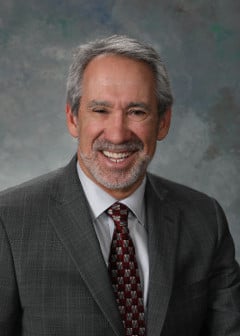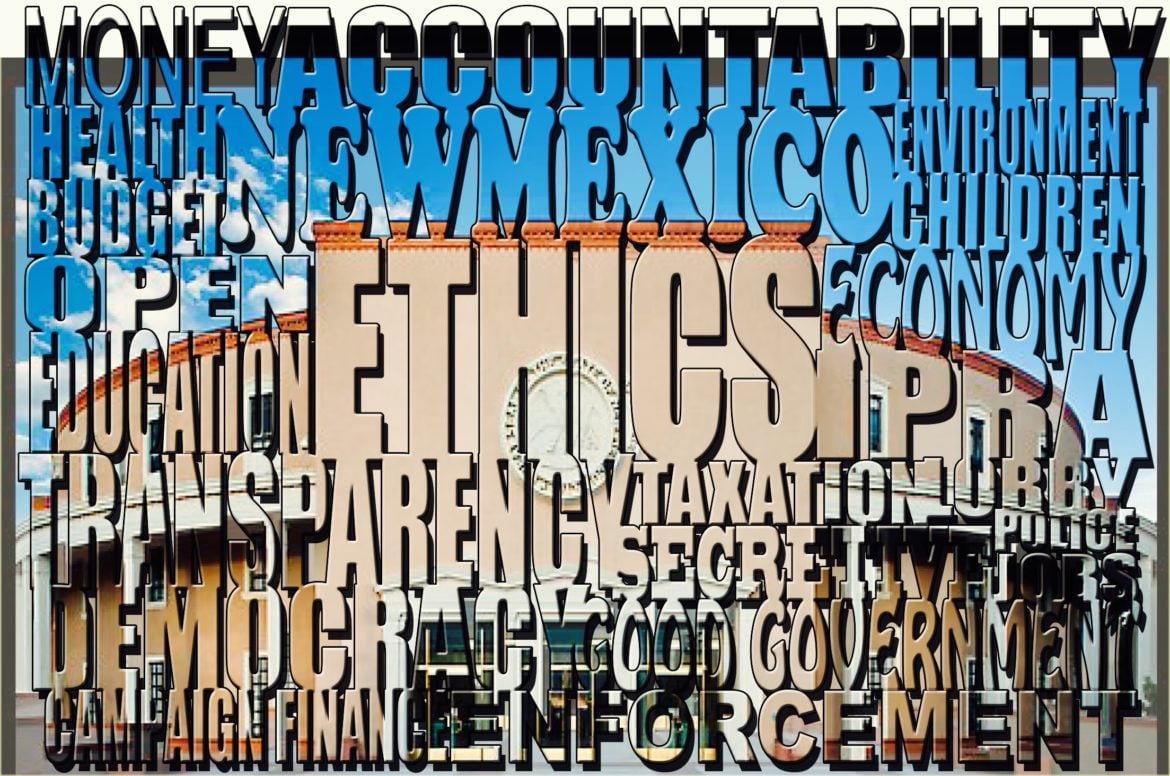With hours to go in the 60-day session, state lawmakers reached a deal on a new, independent ethics commission New Mexicans overwhelmingly demanded in November’s election.
The House voted 66-0 Friday night to approve the latest version of ethics legislation that has undergone multiple metamorphoses in the last several days. The Senate accepted the changes soon after, sending the bill to Gov. Michelle Lujan Grisham’s desk for her signature.

Sen. Daniel Ivey-Soto, D-Albuquerque, who helped shape the bill approved by the House, said late Friday
“tonight was step one,” of the state’s first independent ethics commission that would have oversight of state public officials. He predicted that the Legislature would return in coming years to add local government officials to those the ethics commission would oversee.
Advocates who have been pushing for an independent ethics commission for years were already celebrating late Friday night.
“We are absolutely thrilled that this is something that voters asked for in November and both chambers worked very hard to come up with an ethics commission that they asked for,” said Heather Ferguson of Common Cause of New Mexico.
Lawmakers passed the ethics commission legislation this session after seventy five percent of voters approved adding an independent ethics commission with subpoena power to the state constitution.
The bill envisions an ethics commission that would oversee state public officials, including state lawmakers, state employees and constitutionally elected officials like the governor. The seven-member commission could fine public officials if they are found to have violated civil provisions of several state laws.
The commission would be able to investigate officials and could further that fact finding by asking a designated judge to grant subpoenas for documents and other materials.
People who file complaints would have to in the presence of a notary public attesting to the truth of their allegations under penalty of perjury.
The commission’s general counsel would then determine whether those complaints warranted further investigation and, if so, would do the investigating himself or herself. Hearing officers would then adjudicate cases in which evidence suggested there was an ethical violation, using the legal standard of preponderance of evidence to make that determination. A public official who disputed a hearing judge’s finding could appeal the ruling to the seven-member ethics commission.
When the ethics commission can make a complaint public has been a major sticking point throughout negotiations. And a compromise was struck in the bill the House passed. Complaints would be made public 30 days after probable cause was found to proceed with an investigation, less than the 45 days contemplated by the Senate but more than the five days suggested by others.

An amendment added during Friday’s House debate had nothing to do with the ethics commission itself. It would add statewide public officials such as the attorney general, secretary of state, public land commissioner and state auditor, or candidates for those offices, to those prohibited from soliciting campaign contributions from Jan. 1 through the end of each year’s legislative session. State lawmakers are already prohibited.
The ethics commission would be funded by $500,000 in the state budget for the fiscal year that begins July 1. But Ivey Soto said the Legislature could add to that amount during next year’s legislative session once the commission is up and running.
Rep. Daymon Ely, D-Corrales, shepherded SB 668 through a mostly genial House floor debate Friday evening, handling questions both basic and arcane.
At one point, Rep. Candy Ezell, R-Roswell, asked if the ethics commission would have prevented what happened to a former Democratic Rep. Carl Trujillo, who lost re-election after a female lobbyist accused him of sexual harassment last year before the June primary election.
A legislative subcommittee dismissed those allegations after the woman refused to testify out of concern that she would be asked to name other women she had spoken with about incidents of sexual harassment and that she might be required to turn over records from mental health providers.
The short answer is no, Ely replied.
The sexual harassment policy that led to Trujillo’s inquiry is a legislative policy. The ethics commission would not investigate potential violations of legislative policies unless the Legislature worked out an agreement for the ethics commission to investigate such complaints. Even then the ethics commission could not fine legislators if legislative policy violations are found. The ethics commission would be required to turn over its findings to the Legislature, which would determine the legislator’s punishment.
